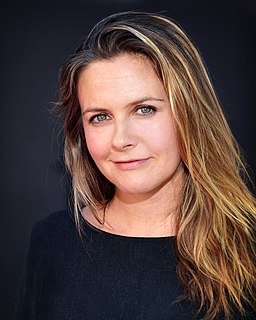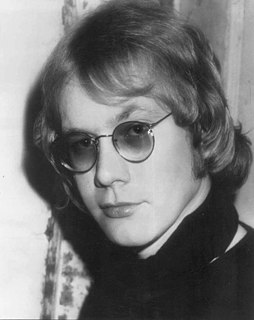A Quote by Christopher Paolini
It is a better world. A place where we ate responsible for our actions, where we can be kind to one another because we want to and becauseit is the right thing to do instead of being frightened into behaving by the threat of divine punishment.
Related Quotes
Certainly with a book, people are going to be able to read it and give themselves permission to have that delicious feeling of being terrified because they're in a safe place while they're reading. That's what you can rely on as a writer, that people can let themselves be really frightened because they're really all right. Being frightened when you're not sure you're all right is a big difference.
In creating a building, architects do think they're making the world a better place. And then they hope to make the world an even better place by making another thing which will be even bigger than the last thing... and it is part of the pathology of being an architect to believe thus, and they do believe it, despite all the evidence to the contrary.
[Religion] attacks us in our deepest integrity - the core of our self-respect. Religion says that we would not know right from wrong, we would not know an evil, wicked act from a decent human act without divine permission, without divine authority or without, even worse, either the fear of a divine punishment or the hope of a divine reward. It strips us of the right to make our own determination, as all humans always have, about what is and what is not a right human action.
Food historian Jessica B. Harris says African American cuisine is simply what black people ate. When I think about what my family ate, we ate what people think of as soul food on special occasions, on holidays, but our typical diet was leafy greens and nutrients and tubers - food that was as fresh as being harvested right before our meal. Whatever was in season, that's what we were eating. It was being harvested right from our backyard.
Through a particular magical practice it is possible to modify the being that has only one element into a being with four elements and to give it an immortal spirit. But a magicial will seldom intervene without good reason, because he is responsible and must justify his actions before Divine Providence.
I used to think that when I got older, the world would make so much more sense. But you know what? The older I get, the more confusing it is to me. The more complicated it is. Harder. You’d think we’d be getting better at it. But there’s just more and more chaos. The pieces—they’re everywhere. And nobody knows what to do about it. I find myself grasping, Nick. You know that feeling? That feeling when you just want the right thing to fall into the right place, not only because it’s right, but because it will mean that such a thing is still possible? I want to believe in that.
The big thing is, everybody says it's being in the right place at the right time. But it's more than that, it's being in the right place all the time. Because if I make 20 runs to the near post and each time I lose my defender, and 19 times the ball goes over my head or behind me - then one time I'm three yards out, the ball comes to the right place and I tap it in - then people say, right place, right time. And I was there *all* the time.
Two questions help us see why we are unlikely to get what we want by using punishment... The first question is: What do I want this person to do that's different from what he or she is currently doing? If we ask only this first question, punishment may seem effective because the threat or exercise of punitive force may well influence the person's behavior. However, with the second question, it becomes evident that punishment isn't likely to work: What do I want this person's reasons to be for doing what I'm asking?
People write because it seems like it'll be an easier job than carpet laying, that they might meet more girls. And they write because the world strikes them as being a marvelous place, and they want to keep bringing that to everybody's attention. You know ~ a scary place, a menacing place, an exciting place because it's scary and menacing. But mainly, kind of glorious.
Since ancient times, the philosophers' secret has always been this: we know that God does not exist, or, at least, if he does, he's utterly indifferent to our individual affairs--but we can't let the rabble know that; it's the fear of God, the threat of divine punishment and the promise of divine reward, that keeps in line those too unsophisticated to work out questions of morality on their own.



































